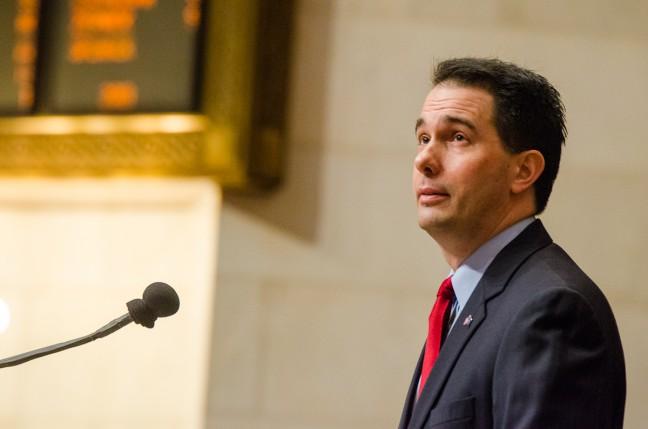Democratic lawmakers have proposed legislation that would increase the current minimum wage of $7.25 to $10.10 over the next three years, sparking opposition from Gov. Scott Walker and other state Republican legislators.
Proving to be an issue of major partisan disagreement, the bill, introduced with 46 Democratic co-sponsors, lacked a single Republican cosponsor.
“Wisconsin’s working families deserve a raise,” Rep. Cory Mason, D-Racine, said in a statement. “More and more of our nation’s wealth is going to the richest few, while the cost of gas and groceries increases, and family income stagnates. It is long past time for those at the bottom of our economic ladder to get a raise.”
According to a Sheboygan Press article, Walker spoke out against the legislation calling it a “political grandstanding stunt.” He said artificially boosting the minimum wage would hurt the same people the legislation is intended to help, as well as hold back the state’s economic recovery by causing business-owners to cut back on worker-hours in addition to laying off employees.
Chip Hunter, an associate professor of Management and Human Resources at the UW School of Business, said a loss of jobs along with a raised minimum wage is far from a given.
“The evidence on what happens to the number of people working when you actually raise the minimum wage is extremely mixed, but there is no evidence that you’re going to throw lots of people out of work if you raise the minimum wage,” Hunter said.
Hunter said increasing the minimum wage is a crude way of helping low-income people in need of financial help because of the additional, sometimes unintentional, consequences of raising the minimum wage. This includes an upward pressure on wages right above the current minimum wage, he said.
The $3 increase in minimum wage would take place over a three-year period, increasing by more than a dollar a year to allow businesses to slowly adjust to the change, Rep. Melissa Sargent, D-Madison, said.
Sargent said she believed that increasing wages would ultimately end up saving the state money, as it would decrease people’s need for government subsidies such as food stamps, healthcare and childcare.
Working full-time at the current minimum wage of $7.25 an hour, an individual would make about $15,000 a year. The poverty line for a family of four in the United States is $23,550 a year.
The legislation would give an estimated 600,000 low-wage workers in Wisconsin an economic boost, Mason said.
A Democratic proposal in the U.S. House of Representatives to raise the national minimum wage to $10.10 an hour got the backing of 75 leading economists, among them seven Nobel laureates, according to a CNN report.
But, the bill is not likely to pass through the state legislature while Republicans control the Senate and Assembly. According to Fox6 Milwaukee, Speaker Robin Vos, R-Rochester, has made it clear the issue will not be currently addressed.
“I’m not a big supporter of artificially increasing the minimum wage. I think the marketplace is a much better way to go,” Vos said.
Correction: The article previously incorrectly identified Speaker Robin Vos as from Racine. We regret the error.


